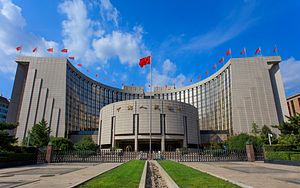In an interesting article written for China Finance magazine, People’s Bank of China Deputy Governor Yi Gang proposed a Tobin tax to discourage short-term speculation. The tax would impose a fee on foreign exchange trades and short-term capital flows that may contribute to the volatility of China’s capital markets. While a good idea in theory, the tax has proven to dampen financial activity and reduce competitiveness in practice.
PBOC Deputy Governor Yi Gang and other financial officials promote convertibility of the RMB on the capital account while advocating some controls. While foreign capital inflows and outflows are at relatively low levels, opening up the capital account will speed up international financial flows. The Tobin tax would impose a friction to reduce the speed of rapid inflows or outflows.
Rapid currency flows and RMB speculation present a threat to maintaining currency stability. China witnessed strong international financial pressures during the Asian Financial Crisis, in which rapid capital outflows resulted in the collapse of the Southeast Asian economies. Capital controls became once again in vogue as China stood strong in the face of currency attacks and melting financial sentiment in Thailand, Indonesia, and South Korea in particular. As China gradually lifts capital controls, financial regulators are seeking ways to ensure stability. The Tobin tax was considered in China last year and has been proposed once again among financial authorities.
The Tobin tax was proposed in 1972 by James Tobin after the global financial system of fixed exchange rates (within a band) collapsed, and was initially suggested as a tax on spot exchange rate conversions. After the Asian Financial Crisis and other crises of the nineties, Tobin once again proposed the idea to reduce currency volatility. The idea is elegant if one considers financial stability alone, but becomes less attractive when taking into account financial competitiveness. As a result of the tax, financial investors may choose to invest in other countries that have lower transactions costs.
The Tobin tax is a type of financial transaction tax. Financial transactions taxes have been tried in various nations with often poor results. Implementation of a securities transaction tax flopped in Sweden, Japan, the Netherlands, and other nations as competitive pressures proved too much to bear. In France and Italy, the tax has reduced liquidity and financial growth. Despite these failures, a financial transaction tax, which would impose a tax on financial transactions between financial institutions, is being considered in the European Union.
China has considered unorthodox economic policies previously, calling for a global currency during the financial crisis and now evaluating the impact of a Tobin tax. The Tobin tax, if agreed upon, would likely be piloted first in a limited fashion. Still, given the poor outcomes of general financial transactions taxes carried out in other nations, and the pragmatic stance of Chinese financial authorities, consensus on a Tobin tax is dubious. The fact that the tax is being considered is a good sign, however, as it indicates authorities are open to different policy options, not simply the most orthodox. After all, it will take some unconventional thinking to control capital flows once capital controls are fully removed.

































